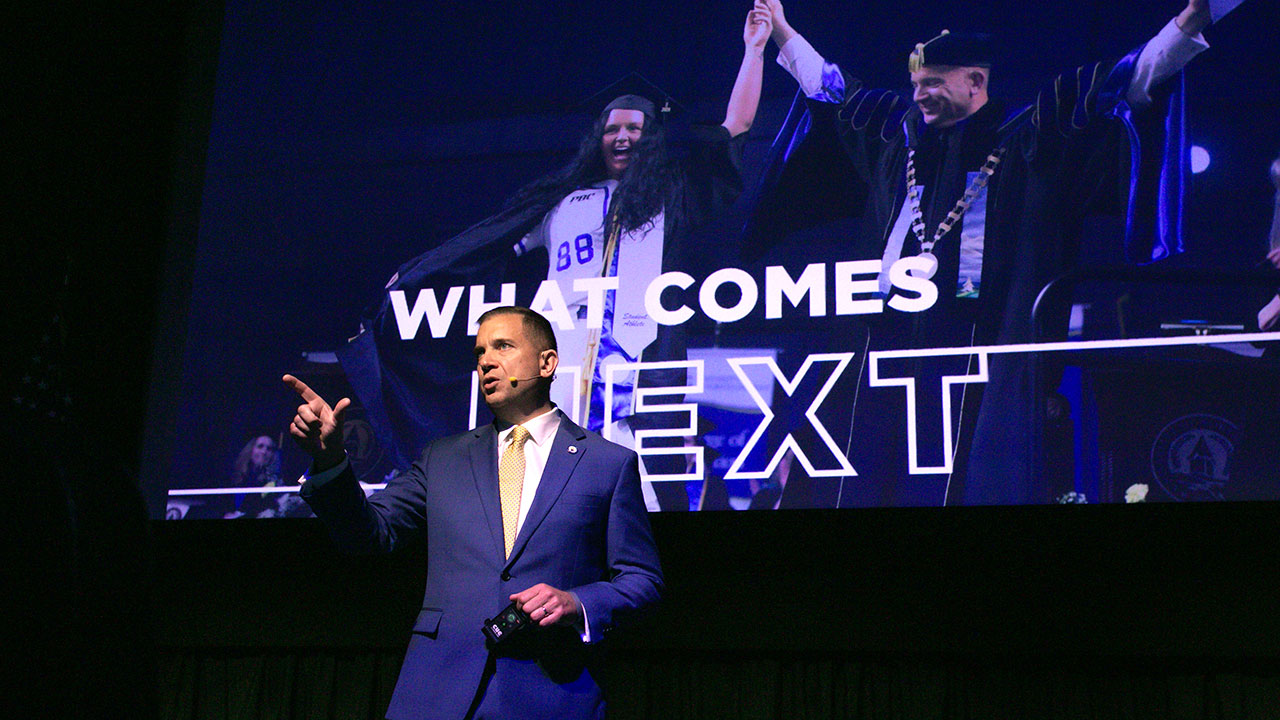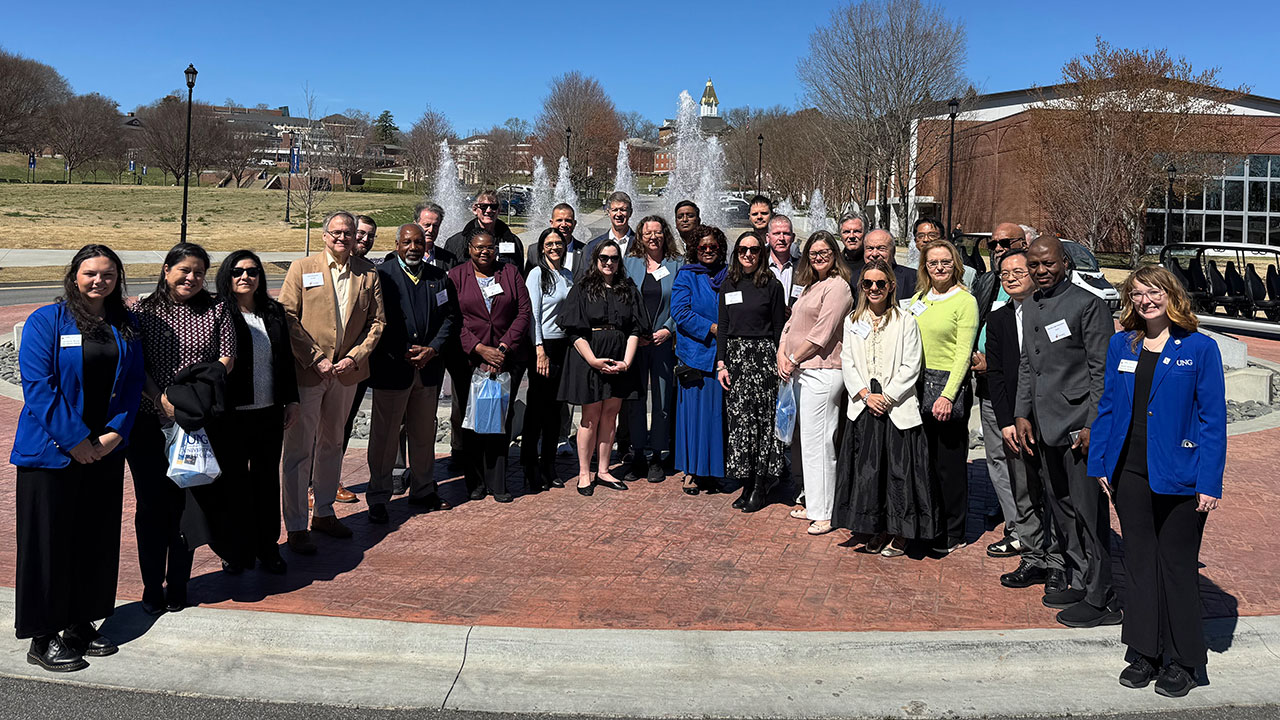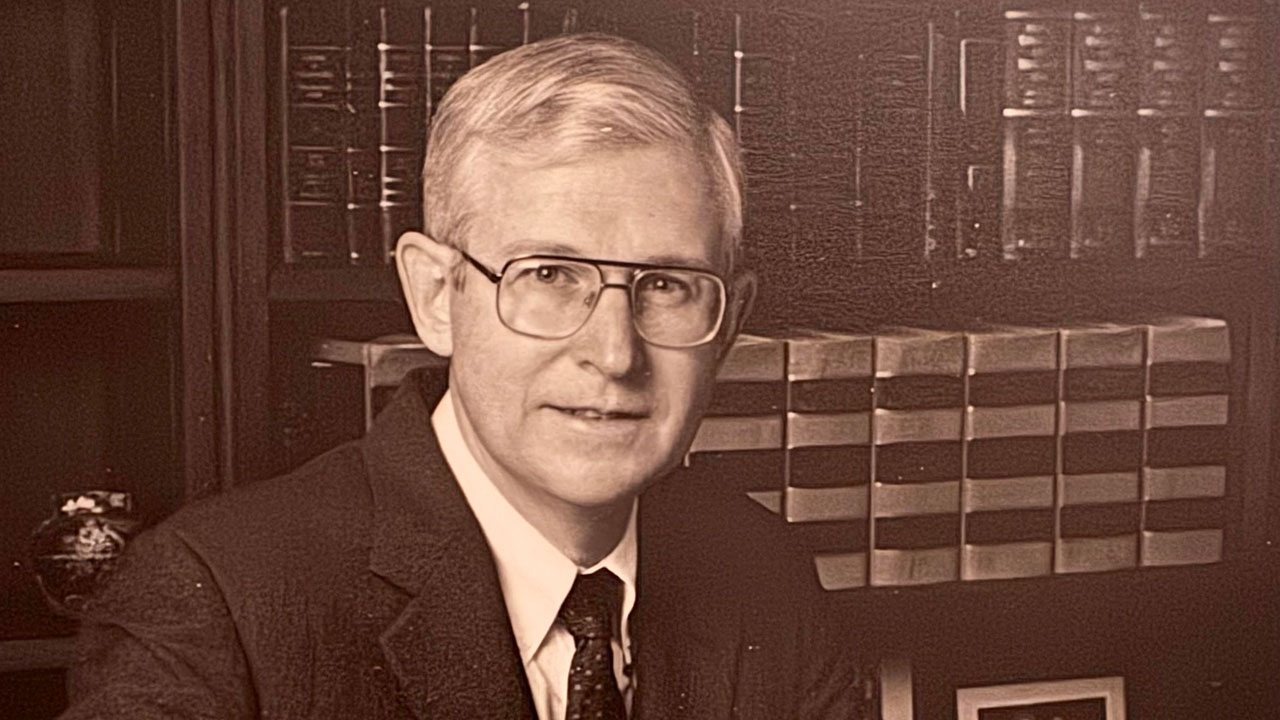Jacobs: COVID-19 has shown UNG's agility, resilience and innovation

Article By: Clark Leonard
A week ahead of the fall 2020 semester, University of North Georgia (UNG) President Bonita Jacobs praised the flexibility of students, faculty and staff in the midst of the COVID-19 pandemic.
"The pandemic has been disruptive to our work, but it has highlighted our agility, resiliency and innovation," Jacobs said in her State of the University address as part of the Faculty and Staff Convocation.
See the full text of her speech.
The annual Faculty and Staff Convocation, which moved to a virtual experience due to COVID-19 social distancing, included professional development through the second annual UNG Learning, Engagement, Achievement, Development, Service (LEADS) Day. Sessions focused on topics related to student success and diversity and inclusion.
Jacobs emphasized the importance of health and safety protocols in returning to campus successfully.
"We are providing a campus-based experience with as much flexibility as possible for as many people as possible. The situation remains quite fluid, and our operations may have to adapt over time to changing conditions," Jacobs said. "While we cannot eliminate the risk of COVID-19, everyone can help mitigate the risk. Don't come to campus if you are sick or if you have been directly exposed to someone with the virus, social distance, wash your hands, and, of course, wear a mask. These are all necessary steps to maintaining a healthy and safe environment for all of us to live, work and learn."
Jacobs noted that the University System of Georgia's (USG) recent enrollment projections predict moderate growth for UNG of 8.9% — about 1,700 students — over the next 10 years. UNG's projected growth rate is second only to Georgia Tech. UNG also had record enrollment for the 2019-20 academic year and set a summer enrollment record in 2020.
"Our history of academic excellence is one of the factors that attracts students to UNG," Jacobs said. "And this year there were amazing examples that highlight the opportunities that we provide students and faculty."
Some of UNG's accomplishments include:
- First place among more than 500 schools in the NSA Codebreaker Challenge that wrapped up in January.
- The MacArthur Award as the nation's top senior military college.
- UNG cadets also won the Spartan Ranger Challenge for a third-straight year and earned the right to send two teams to compete in the international Sandhurst Military Skills Competition at the U.S. Military Academy at West Point before it was canceled.
- UNG was named a top producer of Fulbright students for the third year in a row, then had five Fulbright awardees and two alternates.
- A record 27 UNG students were selected for Gilman scholarships.
- Two alumni of the biology program were awarded National Science Foundation Graduate Research Fellowships each worth up to $134,000.
- Faculty and staff earned nearly $3 million in external grants.
- Two students were awarded a Barry Goldwater Scholarship, which is the most prestigious national undergraduate STEM award.
- Kylee Smith earned the Academic All-America Team Member of the Year award for Division II softball, and UNG's more than 225 student-athletes carried a record cumulative 3.26 grade point average.
- UNG won the Peach Belt Conference's LeeAnn Noble Make-A-Wish Award for the 11th straight year after donating almost $14,000 to the annual initiative.
- Lindsay Reeves was named one of three NCAA Division II Athletic Directors of the Year for the second time in her career.
Jacobs affirmed her commitment to awarding Presidential Incentive Awards in the midst of budget cuts. These awards are given annually to support faculty and staff professional development and the pursuit of new and innovative ideas that support UNG in fulfilling its mission.
"We are studying the budget, and I am optimistic that, while we may not be able to provide as much funding as in previous years, we will be able to continue with Presidential Incentive Awards," Jacobs said. "These are important endeavors that directly enhance your expertise, our students' educational experiences, and innovations that improve professional practices."
She is eager to see how students, faculty and staff rise to the challenges they face this fall.
"The days ahead may not be easy, but the University of North Georgia is strong, and I am optimistic about our future," Jacobs said. "I am grateful for the invaluable support and leadership from so many in our university community."



